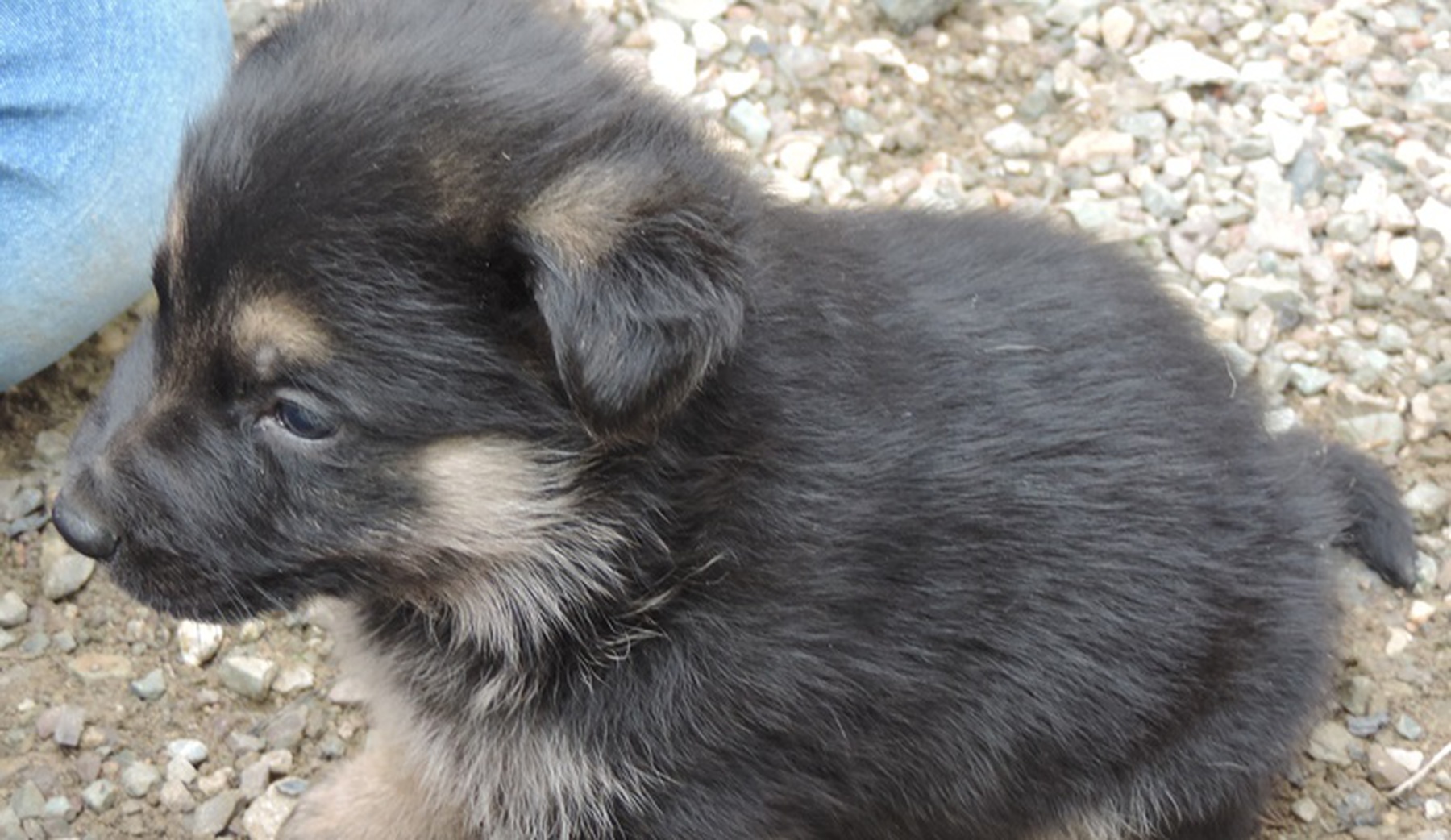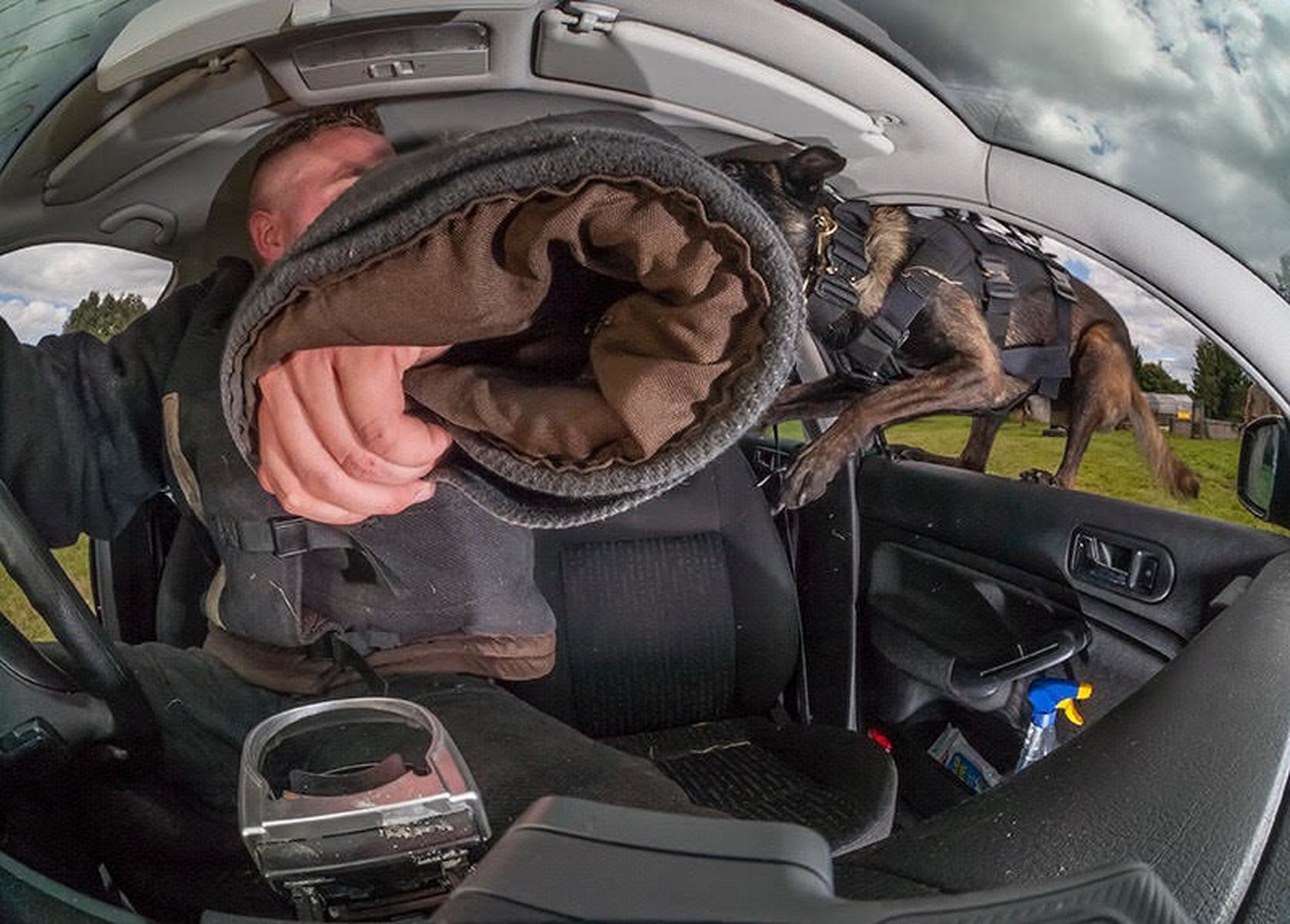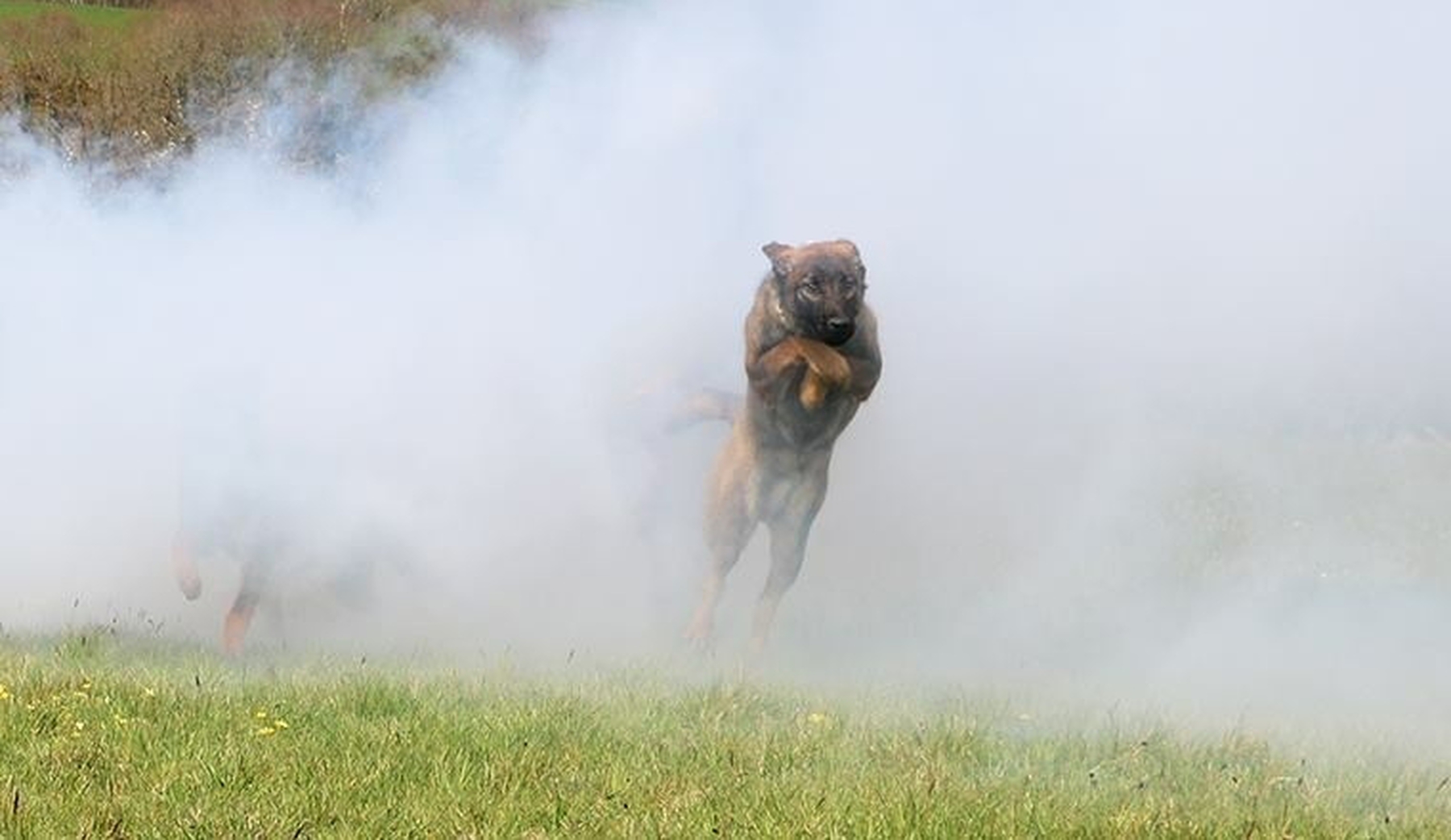
- Inspiring People -
- 7mins -
- 1,411 views
This Pack of Specially Trained Dogs Have Saved 45 Rhinos from Poachers
The anti-poaching K9 fast response unit are trained to protect wildlife and have so far saved 45 rhinos (and counting) from illegal hunting and helped law enforcement teams catch an unprecedented 145 poachers in South Africa.
Specially Trained Dogs Save 45 Rhinos (so far) from Poachers
A pack of dogs in South Africa, trained to protect wildlife, have so far managed to save the lives of 45 rhinos from poachers. The group began training as puppies and were taught how to handle the pressures of real-world operational duties. Ranging from bloodhounds to beagles, and trained at the Southern African Wildlife College in Greater Kruger National Park, the canines are part of an anti-poaching K9 fast response unit.
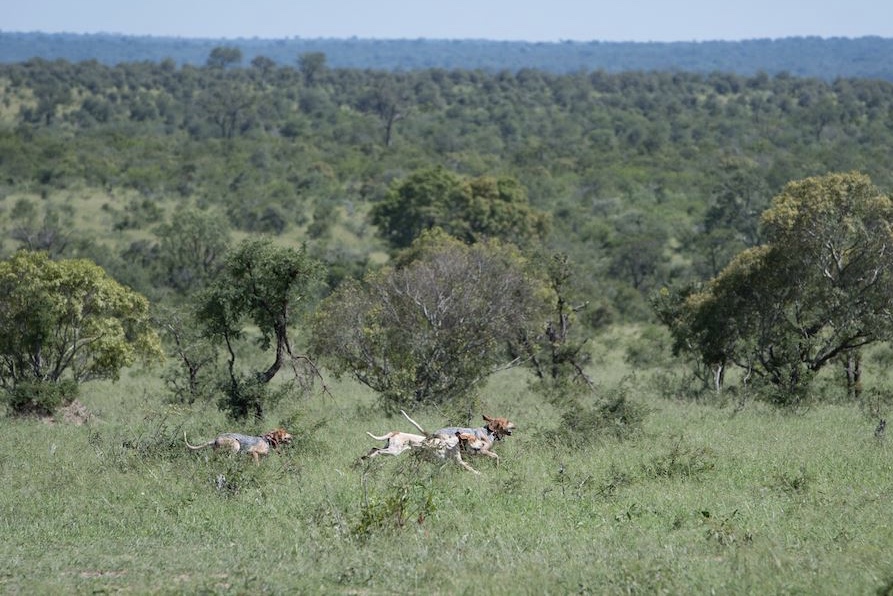
From bloodhounds to beagles, the free-tracking dogs are a game changer
The dogs were trained by K9 Master’ Johan van Straaten, and Cape Town-based photographer Sean Viljoen shared photographs of the dogs in action at the South African Wildlife College.
"The data we collect for this applied learning project aimed at informing best practice, shows we have prevented approximately 45 rhino being killed since the free tracking dogs became operational in February 2018," said Johan van Straaten.
Johan added the success rate of the dogs is around 68% in areas where the South African Wildlife College patrol. The game-changer, he says, has been the free tracking dogs, who are able to track speeds much faster than a human.
"Over the past decade over 8,000 rhinos have been lost to poaching making it the country hardest hit by this poaching onslaught. The project is helping ensure the survival of southern Africa’s rich biodiversity and its wildlife including its rhino which has been severely impacted by wildlife crime," said Johan.
Poaching is a huge problem in South Africa, where 80% of the world’s rhino population resides. In the past few decades, over 8,000 rhinos have been killed by poachers, with South Africa being one of the hardest-hit countries.
According to the WWF, African rhinos are now classified as critically endangered as only over 5,000 of them remain in the wild. But there is some good news. Since 2015, the charity ‘Save The Rhino’ recorded a significant downward trend in the number of rhino deaths.
Source: TimesNowNews

Almost immediately after arriving at the park, the dogs caught a group of poachers
The story began in 2017, when Theresa Sowry, CEO of the Southern Africa Wildlife College, visited a man named Joe Braman at his rural ranch in Southern Texas. Braman was a part-time police officer, businessman, and cowboy with no knowledge of the poaching crisis happening half a world a way—but Sowry had heard Braman trained a special bloodline of dogs that had found great success in helping Texas law enforcement catch escaping prison inmates. She wanted to see for herself whether the animals could be of help at the southern tip of Africa.
“Just think about it,” Braman told National Geographic. “If you spun a globe and threw a dart and it stuck, what’s the odds you’ll find a low-key guy in southern Texas’s coastal bend gettin’ picked to stop the extinction of a species?”
South African National Parks had previously employed anti-poaching teams using individual dogs, but their success was limited. “Kruger was very keen to test free-running dogs,” Sowry explained to NatGeo. “Building a pack dog team is a massive undertaking. You need the right genetics, the right training, and, most importantly, the right mind-set to bring it all together.”
When Braman arrived in South Africa, the plan was simply to asses Kruger National Park’s K9 unit and to train a handful of dogs—but the project quickly expanded to reach a scale that nobody anticipated. After finding that training practices in the country were much different that what he did on his ranch back home, he returned to Texas to train a group of dogs which he could later bring back to Kruger.
Upon returning with his dogs, Braman didn’t know what to expect—but almost immediately after arriving at the park, the canines managed to catch a group of poachers who had killed a rhino. Since then, there has been a ten-fold increase in successful apprehensions of poachers thanks to the work of the K9 program.
In the midst of the COVID-19 pandemic, the work of the K9 team continues in earnest. On May 7th, the Southern African Wildlife College celebrated the first birthday of the black and tan hound puppies, born from the original dogs that came from Texas—and in six short months, they’ll be joining the veterans out in the field to continue protecting and serving endangered wildlife.
Source: GoodNewsNetwork

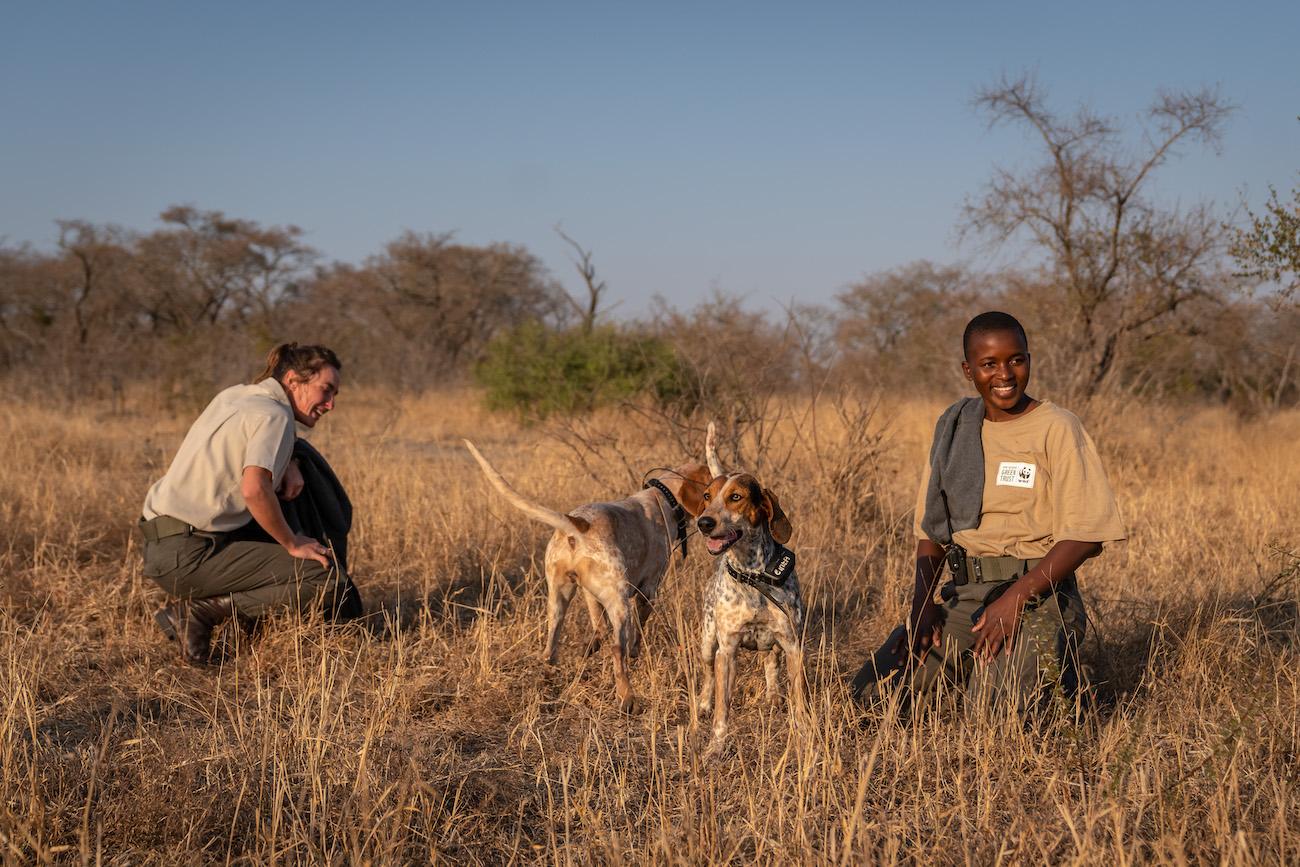
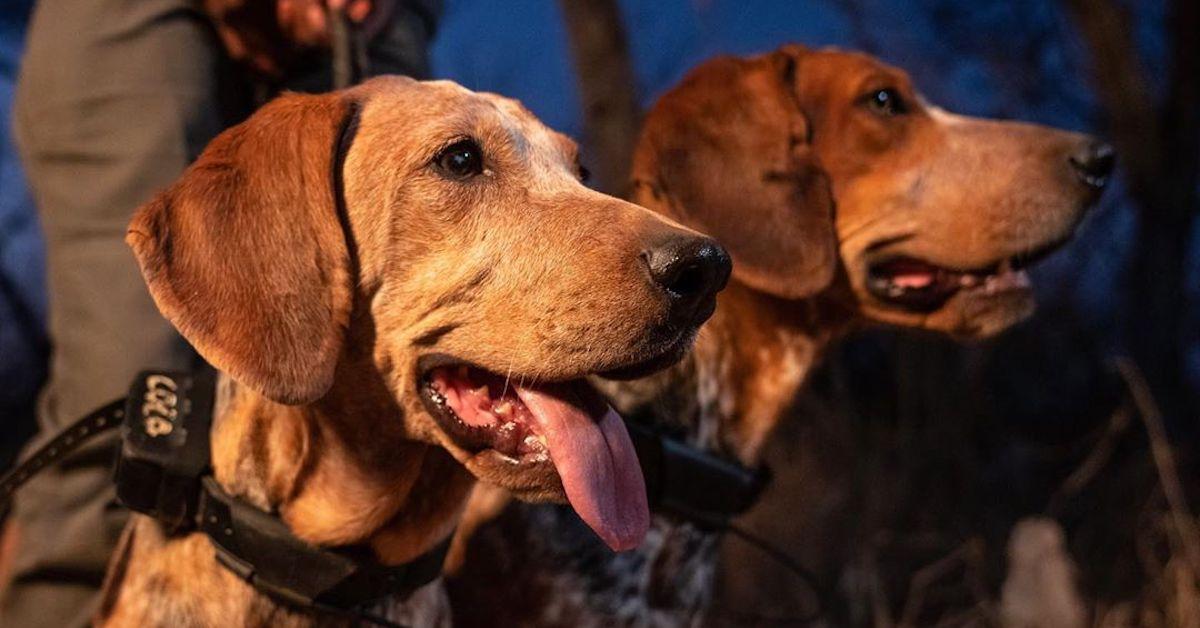



Animals saving Animals: ASA train and deploy highly specialised dogs to anti-poaching units
Elsewhere in Africa, UK charity Real Africa have also been enthusiastic supporters of anti-poaching dog units for some time now. So far they have funded ten specialist anti-poaching dogs, with four of these deployed to important black rhino breeding areas in Zimbabwe (Vaala), Botswana (Savas and Primaa) and Kenya (Drum) and trained by our UK partner Animals saving Animals.
